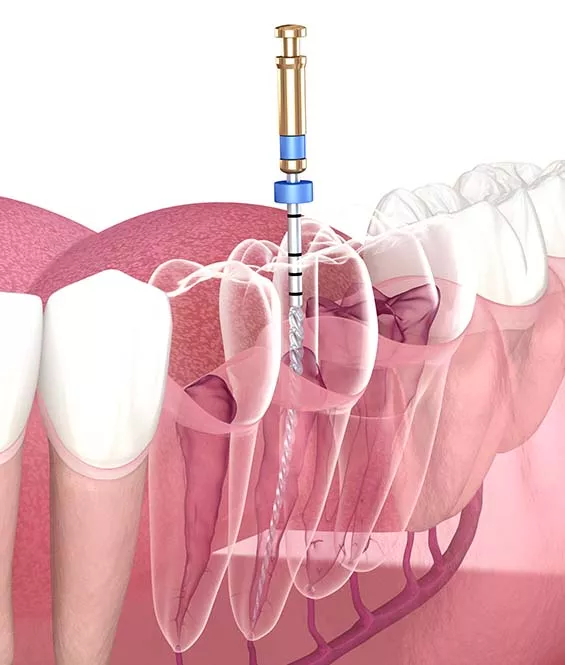Root Canal Treatment
A damaged tooth can be vulnerable to infection, which can result in the loss of the tooth. Root canal therapy treats the infection and saves the tooth from being lost.

When a tooth is damaged by decay or injury, bacteria can get inside and cause an infection in the tooth's soft inner tissue (the pulp). If the infection isn't treated, it can spread to the bone and soft tissues surrounding the tooth, where it can cause a gum infection called an abscess. Over time, this infection can result in gum disease or the loss of the tooth.
Book NowTo perform a root canal treatment, your dentist drills a tiny hole in the damaged tooth and removes the pulp with special tools. After the pulp is removed, they clean the inside of the tooth to prevent another infection and repair the tooth with a filling. When the root canal treatment is completed, your dentist will restore the tooth with a dental crown.
Video: Root Canals
Frequently Asked Questions
How do I know if I have an infected tooth?
The most common symptoms of an infected tooth are severe toothache, sensitivity to pressure or temperature, or sore, swollen, or bleeding gums. Sometimes, an infection can be present without symptoms and can only be detected by your dentist during an examination.
Aren’t root canals painful?
Root canal treatment is performed using a local anesthetic, so the treatment itself is painless. You may experience temporary pain and swelling in the area, similar to having a tooth filled. Contact our office for assistance if you experience severe pain or swelling after your treatment.
How long will the treatment last?
Root canal treatments are permanent and shouldn’t need to be repeated unless the tooth is injured again. The crown will last approximately 10-20 years.
How do I take care of my crown?
Brush and floss around the treated tooth as normal.
